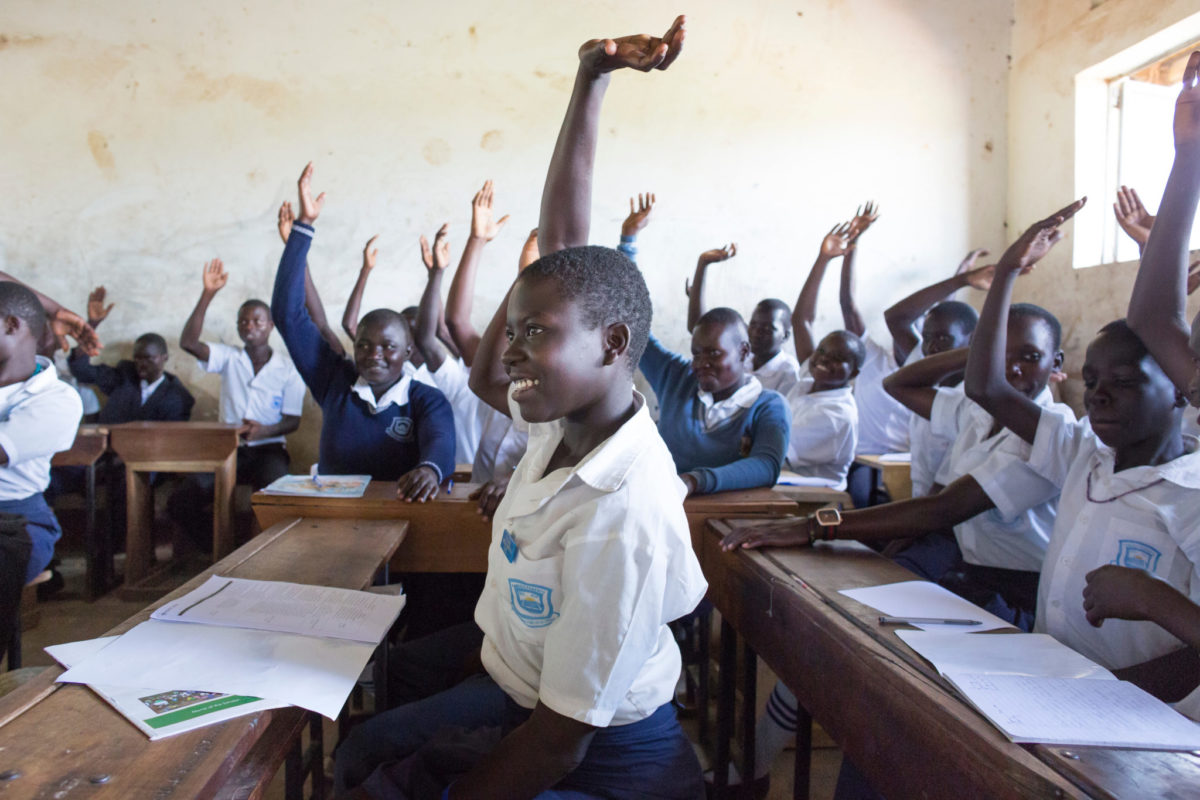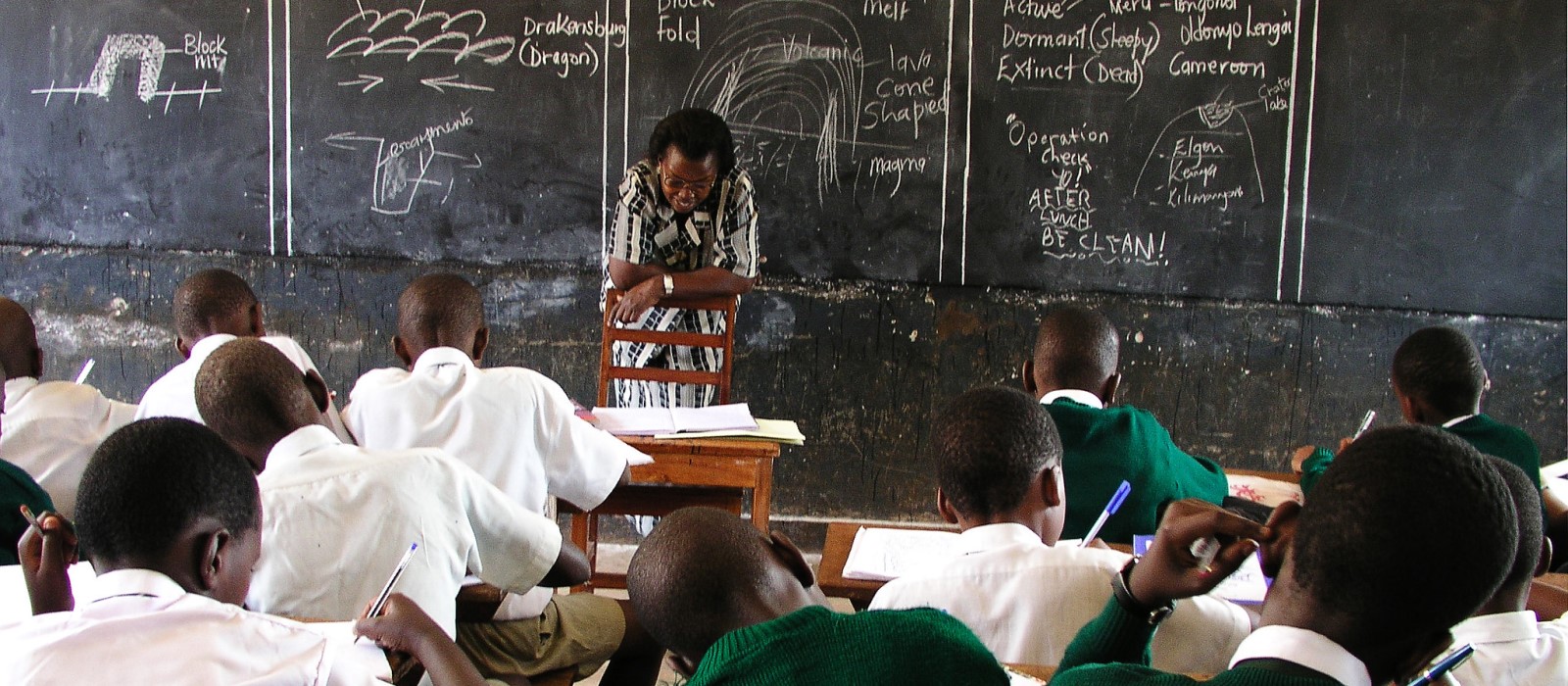Teaching “Soft Skills” in Uganda

Girl raising hand in Uganda – Educate! Secondary school program – Soroti region
Meaningful, lasting impacts of a secondary school social leadership program in Uganda
What skills help youth succeed and can they be taught? With funding from the Hewlett Foundation via CEGA’s Behavioral Economics in Reproductive Health Initiative (BERI), the Global Innovation Fund (GIF), IPA’s Intimate Partner Violence Initiative (IPV), and Wellspring Philanthropic Fund, Dana Carney (UC Berkeley), Laura Chioda (World Bank), David Contreras (UC Berkeley), and Paul Gertler (UC Berkeley) show that teaching soft skills, both interpersonal skills—e.g., communication and teamwork—and intra-personal skills—e.g., self-confidence, critical thinking, creativity, and grit, can generate long-term improvements in youth’s life outcomes in Uganda.
Secondary education represents a substantial investment for families, yet graduates face few formal employment opportunities and often lack the skills required to start their own small business or compete in the formal job market. While many governments in the region have integrated entrepreneurship training into secondary school curricula, these programs are primarily based on hard skills rather than soft skills, and classrooms focus time on memorizing facts rather than practicing skills. Researchers partnered with Educate!, a social enterprise which offers a leadership and social entrepreneurship skill development program for students during the last two years of secondary school, to measure the program’s impact on students’ skills, educational attainment, economic outcomes, and community involvement during the 2012-2013 school years. With funding from CEGA, researchers also tested Educate!’s impact on fertility and sexual-related behaviors. Researchers were able to study impacts on women’s empowerment, gender norms, and intimate partner violence with funding from other partners.
Four years after the program, preliminary results show that the Educate! program significantly improved youth’s intra- and inter-personal soft skills. Educate! graduates focus more on long-term goals and report being more in control of their lives, as well as more empowered to implement actions towards achieving their plans. The shift toward long-term planning was also accompanied by additional investments in tertiary education, especially among women. In particular, researchers found that those who participated in the Educate! program were more likely to graduate from secondary school and Educate! graduates were more likely to select business and STEM majors in tertiary education, suggesting potential positive impacts on future economic outcomes. With more than a third of youth still in tertiary education, it was too soon to fully assess economic impacts. The program also generated important social spillovers. Youth who participated in the Educate! program reported engaging in less risky behavior, delayed family formation, and selected better partners. Moreover, participation in the program led to a reduction in IPV and favorably shifted gender norms. The research team is currently fundraising to carry out a 8-year follow-up to assess long term impacts on an array of outcomes, including labor market outcomes.
Educate! is using this evidence to strengthen its youth skills solutions as they scale in Uganda, Rwanda, and Kenya.
Photo Credit: Uganda — Educate! Secondary school program — Soroti region. Credit: © Cartier Philanthropy. Photographer: Andrea Borgarello


